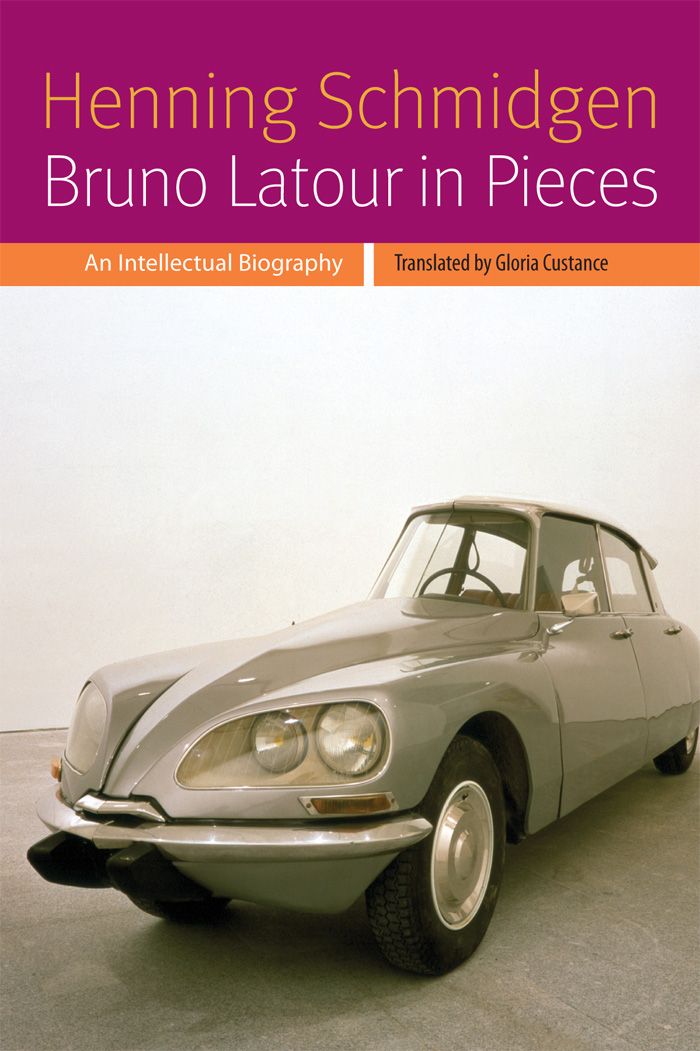Bruno Latour in Pieces
An Intellectual Biography

This book can be opened with

Bruno Latour stirs things up. Latour began as a lover of science and technology, co-founder of actor-network theory, and philosopher of a modernity that had “never been modern.” In the meantime he is regarded not just as one of the most intelligent—and also popular—exponents of science studies but also as a major innovator of the social sciences, an exemplary wanderer who walks the line between the sciences and the humanities.
This book provides the first comprehensive overview of the Latourian oeuvre, from his early anthropological studies in Abidjan (Ivory Coast), to influential books like Laboratory Life and Science in Action, and his most recent reflections on an empirical metaphysics of “modes of existence.” In the course of this enquiry it becomes clear that the basic problem to which Latour’s work responds is that of social tradition, the transmission of experience and knowledge. What this empirical philosopher constantly grapples with is the complex relationship of knowledge, time, and culture.
Schmidgen’s level-headed and comprehensive survey of Bruno Latour’s career offers contemporary readers a desperately needed aid to navigate the multi-pronged and disparate engagements of this important contemporary scholar and public intellectual. Schmidgen excavates the role of exegesis dating from Latour’s training in philosophy, showing how it shapes his ethnological studies of the practices of science and his contributions to the sociology of science and science studies, as well as his theorization of the Actor-Network constellation and his recent makeover as a philosopher of “modes of existence.” Schmidgen’s Latour is a thinker of many faces, and like the Whiteheadian actuality Latour so admires, his thinking comes from prehending the thought of a host other thinkers: thinkers with whom he resonates, like Deleuze and Guattari and Michel Serres, his friend Isabelle Stengers, but also the Catholic philosopher Charles Péguy , the Lutheran theologian Rudolf Bultmann, and the philosoher Etienne Souriau, as well as thinkers from whom he seeks distance, philosophers of historical epistemology like Canguilhem, Pierre Macherey and Dominique Lecourt, the ethnographer Marc Augé, Foucault and Lyotard. What emerges from Schmidgen’s portrait is a nuanced and complex understanding of the vicissitudes of Latour’s career that will do much to help English-speaking readers get to the heart of what makes Latour tick.
“In this accessible study of Bruno Latour's wide-ranging thought, Henning Schmidgen covers the waterfront, from Latour's early writings on exegesis to his recent studies of ecology, technologies, and modes of being. Henning Schmidgen has given us a diagram, as it were, of Latour's ever-evolving work, which Schmidgen always returns to the back and forth between Latour's empirical studies and his reflections on the idea of a network connected particulars without a fundamental root. Along the way, we pass through the landscape of modern french philosophy—Gilles Deleuze and Michel Serres to be sure, but alongside them a panoply of figures from across the disciplinary map—epistemologists, semioticians, sociologists, theologians. A remarkable introduction to the thought of a remarkable thinker.”
Henning Schmidgen is Professor of Media Studies at the Bauhaus University in Weimar, Germany.
Gloria Custance (Translator)
Gloria Custance lives and works as a translator in Berlin.

